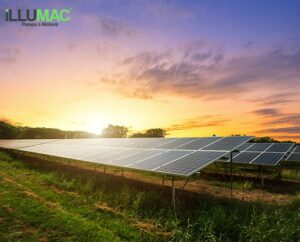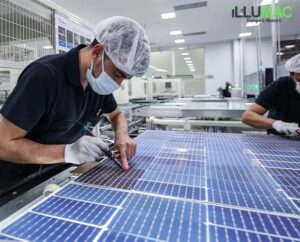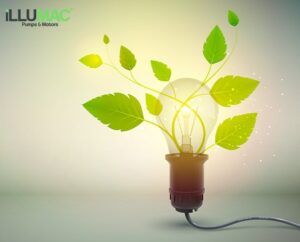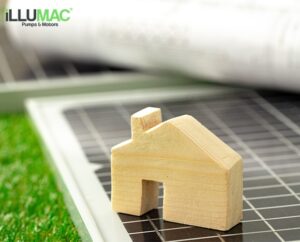Water pumps are devices for moving water, and because they transport water from its source to the fields and crops, they are essential to agriculture. A hose, sprinklers, or other types of irrigation can all be utilized with water pumps.
Water pumps come in a broad variety, ranging from basic manual pumps to ones propelled by electricity or energy sources.
How are water pumps operated?
Water pumps can function in a variety of ways, but in their most basic form, they are made up of three primary components: an intake, a pump system, and an outlet.
When there is a pressure difference inside the pump system, water is pushed into the pump through the intake side because it wants to go from a region of high pressure to an area of low pressure. This is done to transfer water from the pump’s inlet side into a hose that will carry it to your farm or water tank.
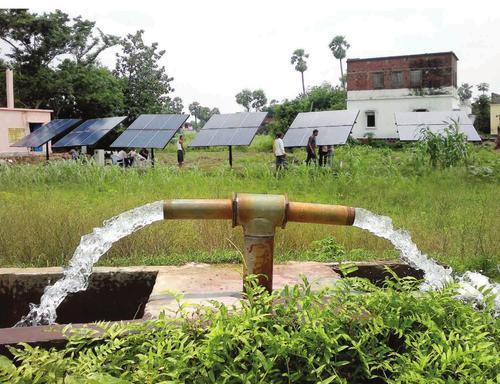
Water pumps can be divided into two primary categories based on how they generate pressure differentials inside the pump system. These kinds include:
- one constructive displacement Water pumps alter the volume of space that is accessible within the pump system to produce a pressure difference. The pressure on the pump’s inlet side is reduced using parts like pistons, closed chambers, and valves, which draw water into the device. After that, the pressure is raised, forcing (displacing) the water through the pump system’s outlet side. (An illustration of this is the Illumac Pumps!)
- Centrifugal Water Pumps: These pumps circulate water through a series of rotating blades called impellers, which transfer energy from their rotation into the water flow.
These pumps all have one thing in common: they require energy to function. This energy may come from fuel, electricity, or, with some effort on your part, from you manually manipulating the pump’s components using a lever.
What varieties of water pumps are available to small-scale farmers?
It might be difficult to determine which water pumps are the best and most appropriate for your farm because there are so many different varieties available. When selecting a water pump, you should take into account your budget, the size of your farm, the water supply, how much water you need, and the power source.
Which water pumps are best for you will mostly depend on your water source. An Illumac Water Pump will work for you if you have a surface water source, such as a river, lake, water pan, tank, or even a very shallow well or borehole, with a water level between 0 and 7m (0 and 23ft).
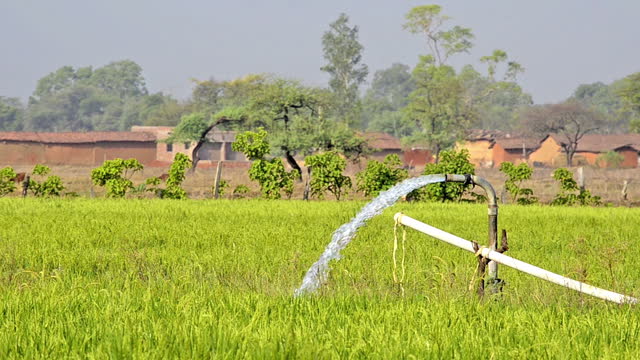
A submersible water pump is required if the source of the water is deeper than this. This is due to the fact that pumps installed at the surface are only physically capable of lifting water up to a depth of 7 meters. Total Head refers to the height a water pump can lift water (or total lift).
- Surface water pumps are pumps that are installed on the ground, away from the water, and have a hose that extends into the water from the inlet side of the water pump. These pumps push water to your field after sucking it up to the pump system.
- Submersible water pumps are submerged. These pump systems must be watertight in order for them to function because the outlet hose and power cables are connected to the pump under the water. These pumps force water up to your farm from the pump’s depth.
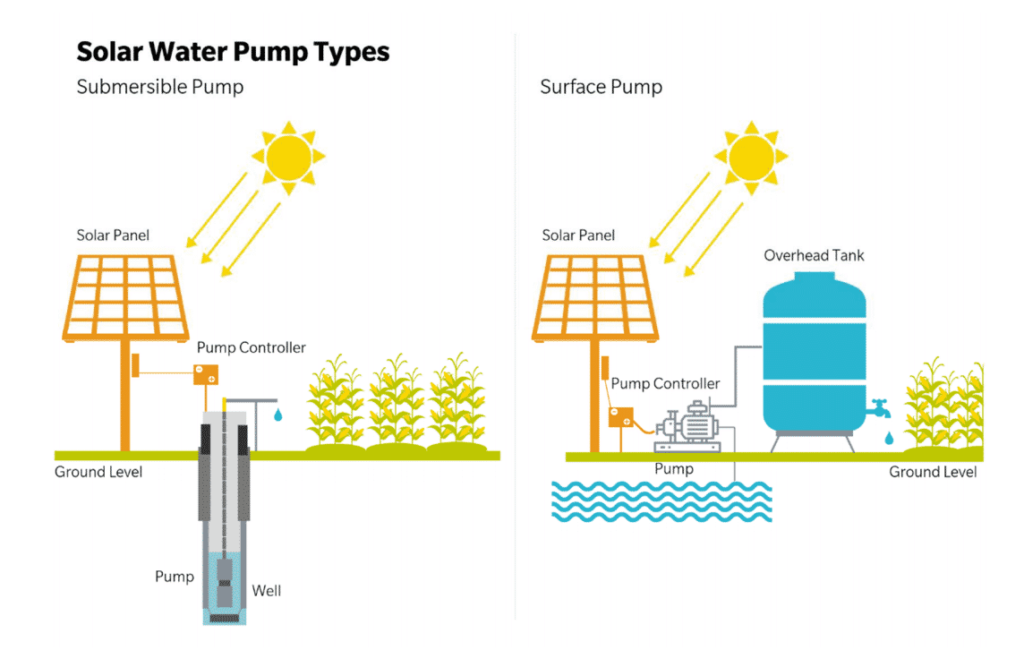
Measures to use a Surface water pump, the Illumac pump, used to demonstrate Total Head (total lift). Total lift = Suction lift + Discharge lift
Depending on your pump type and power source, the flow rate—the measure of how much water is pumped—will change.
In general, the flow rate will be lower the larger the distance that needs to be lifted by the water (a bigger head), as more energy is needed to move the water. Therefore, if you put the same amount of energy into both, surface water pumps from shallow sources will produce more water than submersible pumps from deeper depths (big head) (low head).
The same holds true for your power source; the greater the power available to your pump, the greater the flow.
How should your water pump be powered?
As previously stated, all water pumps require electricity to function.
Because they sometimes appear to be the cheapest option in the store, gasoline and diesel water pumps are nonetheless common across the tropics. Ongoing expenses for these pumps, however, drive raise their cost over their whole lifespan.
Fossil fuel pumps often have short lifespans, necessitating routine maintenance from a mechanic and ongoing fuel purchases. They also cause a lot of pollution, which degrades the air quality on your farm and emits carbon dioxide, which has been discovered to affect how frequently the dry and wet seasons occur.
Manual water pumps like the treadle pump are an additional choice. This demand that you manually operate the pump, frequently using your feet. Even though they are inexpensive, these water pumps need a lot of your time and labor.
On the other hand, if you have a solar water pump, the solar panels will continue to supply free and healthy energy for your pump because solar energy is available all day long, everywhere!
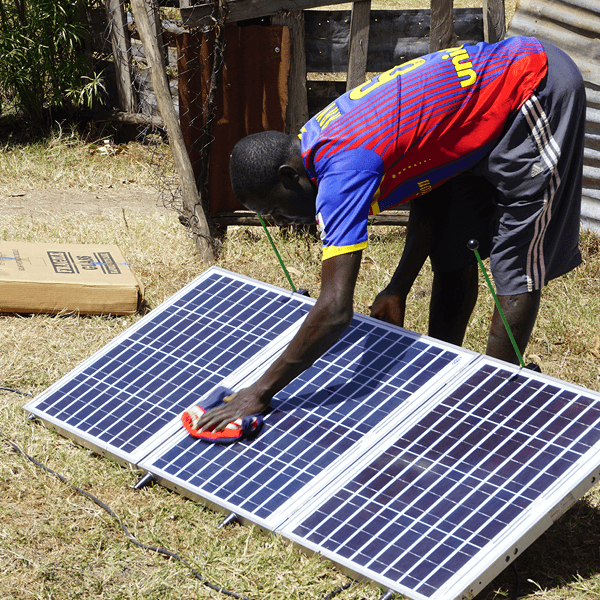
This indicates that you do not need to travel or be connected to the electrical grid in order to buy extra fuel. Additionally, the only maintenance required is a periodic wipe-down to remove dust and dirt from the panels, and then you’re ready to go. For this reason, we firmly think that smallholder farmers should only use renewable solar energy to operate their water pumps.
When you use solar energy to run your water pump, you will:
- Save money because you won’t need to purchase fuel.
- Spend more time doing other things since there is no need for labor to pump the water
- Be able to take care of your own water pump maintenance
- Have the ability to irrigate in a sustainable and eco-friendly manner
Our Line of Solar Water Pumps
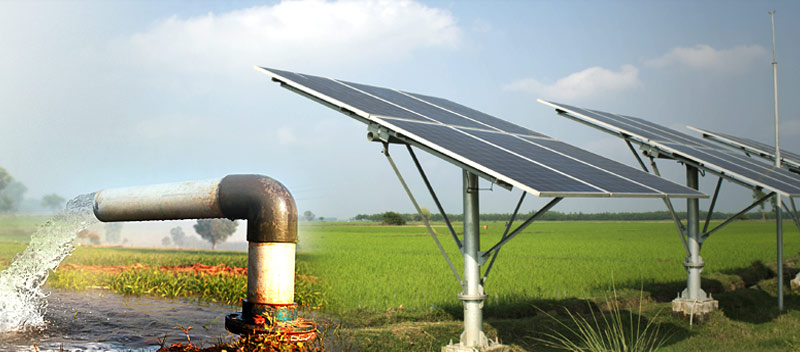
Surface water pumps include the Illumac solar water pumps. They consist of a solar-powered motor, flywheel, and piston. Compared to gas pumps, this straightforward method is easier to repair by yourself and has fewer moving components.
Place the solar panels in a location with plenty of sunlight on your farm, link them to the water pump, connect your hoses (and other irrigation systems you may have), and start your crops growing.
Our product line was created with smallholder farmers in mind, giving them everything they require to irrigate one or two acres for years! All of our solar water pumps have warranties as well. This translates to worry-free operation with minimal labour requirements and simple maintenance!



